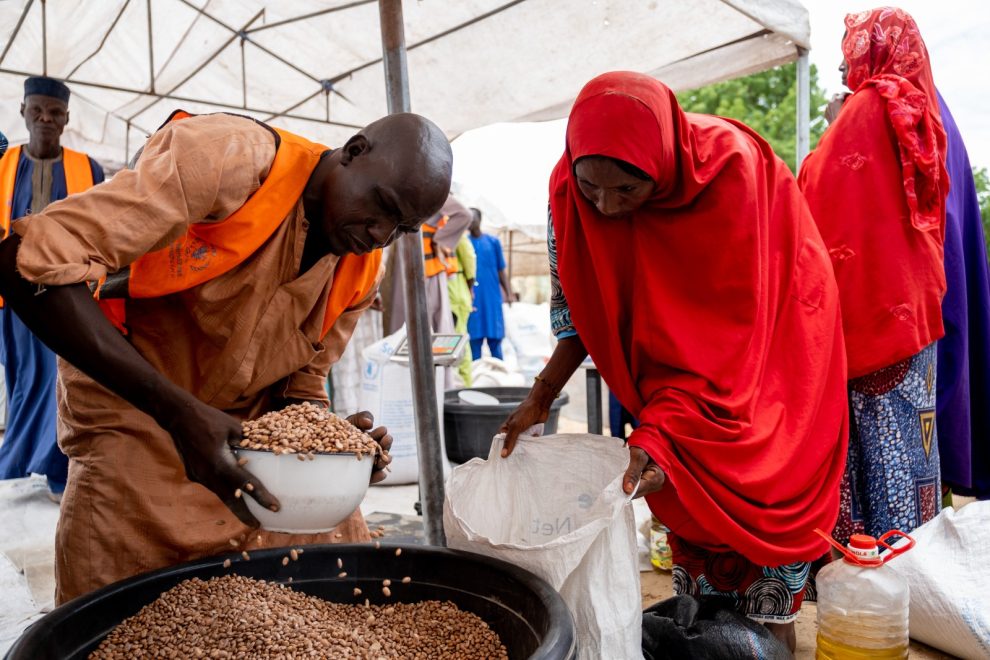By Segun ojumu
ABUJA, NIGERIA – The United Nations World Food Programme (WFP) is being forced to suspend all emergency food and nutrition aid for 1.3 million people in northeast Nigeria by the end of July, citing critical funding shortfalls. This cessation of aid comes amidst escalating violence and record levels of hunger in the region, raising fears of a deepening humanitarian crisis.
The WFP’s food and nutrition stocks are reportedly exhausted, with the last supplies having left warehouses in early July. This means life-saving assistance will cease once the current round of distributions is completed. Without immediate funding, the WFP warns that millions of vulnerable individuals will face dire choices, including enduring severe hunger, migrating, or potentially risking exploitation by extremist groups active in the region.
“Nearly 31 million people in Nigeria are now facing acute hunger, a record number,” stated David Stevenson, WFP Country Director for Nigeria. “At the same time, WFP’s operations in northeast Nigeria will collapse without immediate, sustained funding. This is no longer just a humanitarian crisis, it’s a growing threat to regional stability, as families pushed beyond their limits are left with nowhere to turn.”
Children are expected to be among the most severely affected by the aid suspension. More than 150 WFP-supported nutrition clinics in Borno and Yobe states are set to close, ending potentially life-saving treatment for over 300,000 children under two, placing them at increased risk of wasting.
In the conflict-affected northern areas, escalating violence from extremist groups is driving mass displacement, with some 2.3 million people across the Lake Chad Basin forced to flee their homes. This has strained already limited resources and pushed communities to the brink. Stevenson warned that without emergency assistance, many will migrate in search of food and shelter, while others may “adopt negative coping mechanisms – including potentially joining insurgent groups – to survive.” He stressed that food assistance often prevents such outcomes, allowing the WFP to “feed families, help rebuild economies and support long-term recovery.”
In the first half of 2025, the WFP managed to mitigate hunger in northern Nigeria, reaching 1.3 million people with vital food and nutrition assistance. Support for an additional 720,000 people was planned for the second half of the year, but these programmes are now in jeopardy due to the funding crisis. The WFP urgently requires US$130 million to prevent an imminent pipeline break and sustain its food and nutrition operations through the end of 2025.





Add Comment